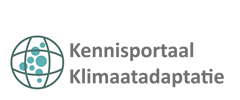West Maas en Waal implementation programme and schedule of measures
The municipality of West Maas en Waal intends to be climate-proof and water-resilient by 2035. To this end, the authorities have drawn up a local climate adaptation implementation programme. The corresponding schedule of measures lists the measures that the municipality will be taking between 2020 and 2023.
What does the municipality intend to achieve with the implementation programme?
The municipality of West Maas en Waal intends to be climate-proof and water-resilient by 2035. That means two things. Firstly, that the municipality will be able to cope with the negative impact of climate change. In addition, the municipality is and will remain a comfortable place to live, work, and relax. That is why the envisaged measures will not only reduce the negative climate impact, but also enhance the sociability and health of the living environment.
What does the implementation programme state?
The implementation programme features actions that the municipality will be carrying out in the period 2020 - 2023. For example, measures will be implemented in the public space, and campaigns will be conducted to involve local and regional parties. In addition, the authorities are embedding climate adaptation more firmly in policy and conducting research. Some measures will be carried out by the municipality on its own; other activities involve collaboration with regional parties. The measures pertaining to the public space are outlined in a separate schedule of measures.
Schedule of measures
For each village in the municipality, the schedule of measures outlines the measures that will be taken in the period 2020-2023. Three categories of measures are distinguished:
- Greenery: the municipality is greening the public space by planting trees, removing pavement, and constructing green corridors. Green corridors are roads featuring a great deal of greenery, that connect the villages with the countryside.
- Comfortable outdoor area: in order to make the public space a comfortable place for residents, the authorities will provide seats and tap water stations. Furthermore, footpaths will be constructed.
- Water resilience: the municipality will direct water to locations where it will not cause waterlogging. To this end, greenbelts and watercourses will be provided.
How has the implementation programme been developed?
The municipal implementation programme is underpinned by the Rijk van Maas & Waal Regional Adaptation Strategy (RAS), which is outlined in the blue box. With respect to each of the topics addressed in the RAS, the municipality has determined what actions it can do on its own and which are better tackled in collaboration with regional parties. Prior to drawing up the local implementation agenda, the municipality has conducted a stress test for its eight villages. In 2019, the municipality had already completed a regional stress test in the purview of the RAS, which also covered the rural areas. However, the level of detail in this stress test was insufficient to select street-level measures. The local stress test has mapped out vulnerabilities and opportunities in terms of heat, waterlogging, and prolonged drought. The test has also identified the locations of such vulnerable groups of residents as the elderly and children. As a result, the authorities now know exactly which locations are vulnerable to climate change. These vulnerabilities have served as the basis for determining, for each individual village, which measures hold promise in terms of mitigating climate vulnerabilities.
Regional Collaboration
The municipality of West Maas en Waal has been pursuing climate adaptation for years. Ever since 2005, the authorities have been working on the water resilience of the area, and since 2015, the municipality has been collaborating on climate adaptation at the regional level as well. The result of this collaboration is the Rijk van Maas & Waal Regional Adaptation Strategy (RAS). The municipality of West Maas en Waal signed the RAS manifesto in 2019, along with more than 30 regional parties. The parties thus agreed to work, individually and collectively, on a climate-proof and water-resilient region in the years ahead. The RAS is focused on six topics:
- Green-blue city, green-blue villages
- Ready for the heat
- Future-proof countryside
- Anti-dehydration offensive for lateral moraines
- Safety of vital and vulnerable functions
- Co-creation of a climate-proof region
Lessons to be learned
- Clear programme: both residents and regional parties want the municipality to take action. With this implementation programme, the municipality clearly indicates what it is going to do. Thus, the efforts can be coordinated with other parties more efficiently.
- Regional collaboration: by collaborating with the region, the municipality is harnessing the expertise and strengths of all the parties involved.
- Local collaboration: the municipality intends to be and remain a comfortable place to live, work, and relax. That is why the authorities regularly meet with such local stakeholders as entrepreneurs, housing corporations, and project developers. The municipality is working on a local heat plan in collaboration with the community health service. Residents are involved in projects and encouraged to participate. In addition, the municipality is using teaching packages and resources to try and turn young people into climate ambassadors. The authorities applaud any initiative relating to the climate. Together, they are climate-proofing the villages.
- Linkage and learning: as the implementation agenda only looks three years ahead, the municipality has focused on opportunities for linking efforts to existing and scheduled actions. The authorities are using this period to set down sound agreements with stakeholders and to learn from the measures. The lessons learned in these years can be applied in subsequent programmes.
Contact person
Martijn Timmermans
Gemeente West Maas en Waal
mtimmermans@westmaasenwaal.nl
